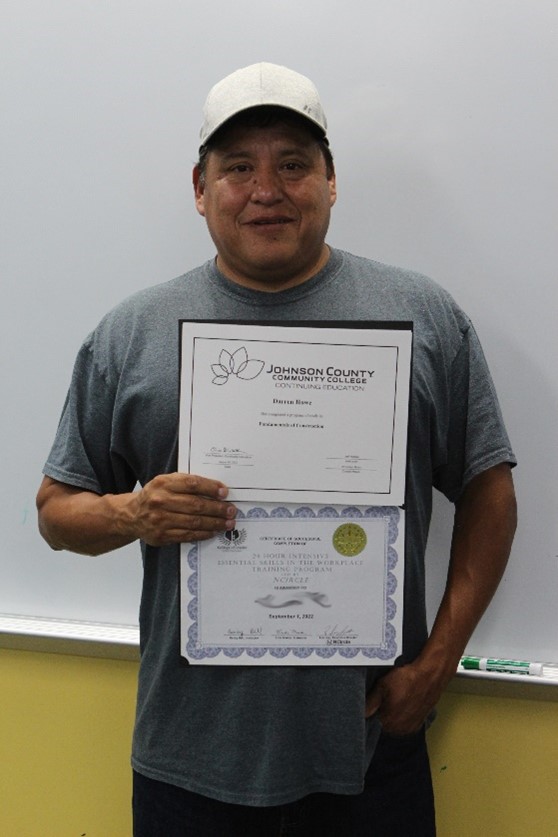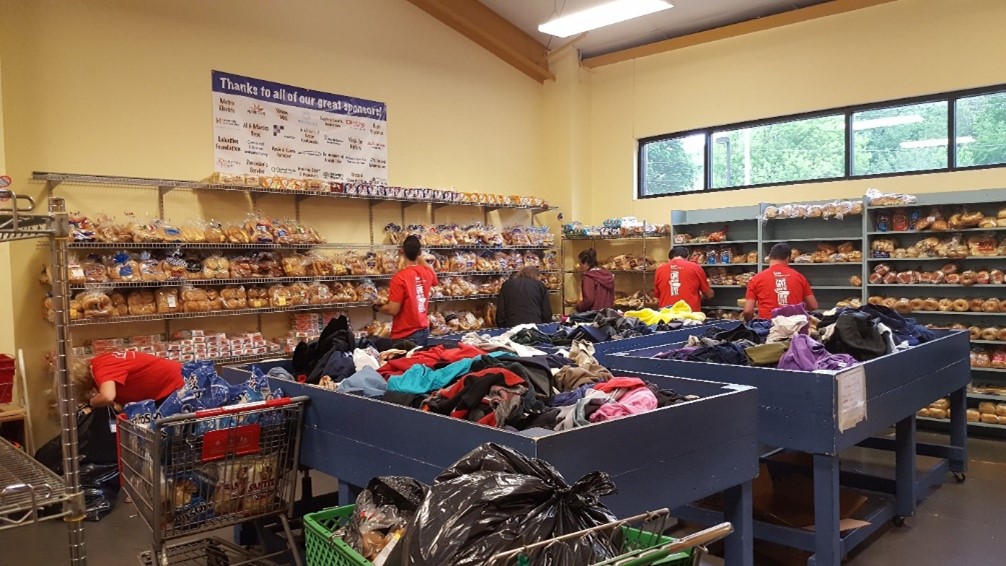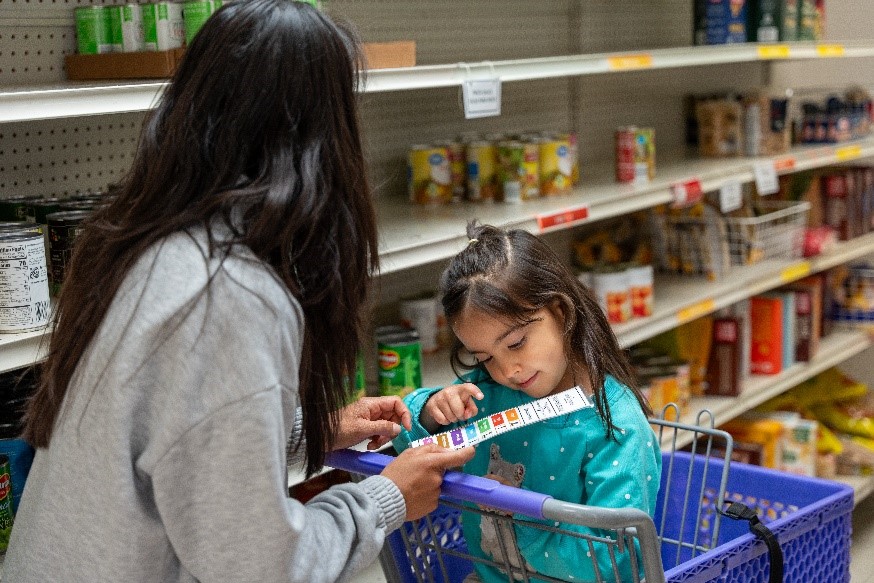Human Service Fund Grant Program Secures Resources to Address Community Needs
Since 1981, UCS has administered the Human Service Fund (HSF), helping the County and cities address critical health and human service needs. The HSF is a competitive process that awards operating grants to nonprofit agencies for programs that meet the needs of Johnson County residents who live with income at or near the federal poverty level. In 2023, programs receiving HSF grants served more than 58,000 Johnson County residents in-need through direct services, including medical and dental appointments, mental health supports, nights of safe housing, counseling and case management, emergency rental and utility assistance, food pantries, and more.
The stories below highlight the lived experiences of Johnson County residents whose lives are impacted by the Human Service Fund.

Darren:
Individuals who have had involvement with the criminal justice system can face significant obstacles to establishing stable, productive lives. Human Service Fund grantee NCircle operates the College of Trades programs which provide skills training, certification instruction, financial education, job placement, and mentorship for individuals in Johnson County Department of Corrections Adult Residential Center (ARC) and Therapeutic Community, as well as adults on probation upon release from the ARC.
Darren joined NCircle’s College of Trades program in the summer of 2022 after completing a five-year prison sentence. Originally from the Crow Lands of Montana, he dreamed of returning home to help strengthen his tribe’s self-sufficiency by keeping economic resources on their reservation. He participated in NCircle’s construction course and appreciated working in the essential skills class with a diverse workforce and getting to know people personally. The College of Trades program empowered Darren and gave him the tools to take the next step to invest in his community.
This summer Darren visited his family in the Crow lands of Montana where he was able to get support from his tribal elders to continue his educational goals in construction. Darren learned that there is a shortage of construction managers in the tribe and that his people are having a challenging time with limited jobs and substance abuse. Darren’s hope is to contribute to the economic prosperity of his community, and to support the revival of the Crow tribal traditions, including their native language.
NCircle was able to connect Darren with two individuals with a background in construction who are providing him with mentorship and support. At Johnson County Community College, Darren is on track to complete seven hours of course work this semester and plans to take on 12 credit hours this fall. He can usually be found studying at the JCCC library, where he “has his own table.”

Sharon:
Sharon is a 65-year-old widow struggling to support her two high school-aged grandchildren and her autistic brother-in-law. Sharon is employed at a local grocery store working the maximum hours allowed. To keep her job, Sharon reached out to Shawnee Community Services for transportation support. The Community Center of Shawnee provides year-round transportation assistance and food pantry services to decrease food insecurity and increase self-sufficiency of Johnson County residents. Their emergency assistance program includes food, clothing, holiday meals, school supplies, transportation assistance, and shelter supports.
With Human Service Funds, Shawnee Community Services is able to support Sharon through gas gift cards so she is able to go to work. Sharon also receives a pantry box once a month that supplements her family’s food budget. Sharon is one of thousands of Johnson County residents receiving assistance provided by Shawnee Community Services to be able to continue to work and be able to provide the essential items in her household.

Sarah:
Sarah is the single mother of three daughters. Several months ago, Sarah was trapped in an abusive relationship, unemployed, and struggling with mounting bills. With support from her savings and her mother, she managed to cover some expenses, including legal fees required for gaining custody of her youngest daughter. However, her financial resources ran out quickly.
Feeling lost and overwhelmed, Sarah sought guidance from various sources. A friend suggested she visit Catholic Charities. With support from the Human Service Fund, Catholic Charities of Northeast Kansas’ emergency assistance and supportive housing program provides direct assistance and strengths-based case management to families living at or below 150% of federal poverty guidelines. Emergency Assistance services include those that meet residents’ basic needs such as food, clothing and shelter, as well as financial assistance with prescription medication, medical supplies, utilities, childcare, and transportation. The case management delivery model emphasizes practices to achieve self-sufficiency, including asset development/financial literacy, workforce development and job-seeking assistance, life skills, and referrals to other available community resources.
Sarah received rental assistance that helped her family avoid eviction and was also able to access essential hygiene items from the Catholic Charities pantry. Now, Sarah is able to envision a brighter future and set meaningful goals for herself and her daughters. These goals include accessing the therapy and counseling she needs, rejoining the workforce, and striving to enhance the quality of life for her family.
Priorities for 2025 Human Service Fund Funding Cycle
Health and human service programs funded by the Human Service Fund must:
- promote self-sufficiency, well-being, and/or personal safety of Johnson County residents and fit within safety net investment components of basic needs, education/training, work and income supports, or health.
- offer county-wide services or fill a gap which results in county-wide benefit.
- offer equal access to all clients and prospective clients who could benefit from the program.
- deliver measurable outcomes which benefit county residents and, in the long-term, benefit local governments by avoiding, deferring, or preventing costs that otherwise might be incurred by local government.
Priority is given to programs that:
- address emergency aid and shelter, adequate housing, child/adult abuse, child welfare, health and mental health, work support services such as transportation, childcare and early childhood development, and job training.
- serve individuals and/or families with income below or near the federal poverty level.
- demonstrate innovation and/or collaboration in program delivery.
- are consistent with an evidence-based program, best practices or promising practices, or replicate a successful model.
- build the capacity of neighborhoods and local jurisdictions to support equity in the social determinants of health.
In 2023, HSF grantees provided services to more than 58,000 Johnson County residents. HSF awarded $412,040 to 19 programs, including 3 programs through a “small grants” pool of funding for new, growing, and grassroots organizations to inclusively support smaller nonprofits.
The 2025 Human Service Fund application season opens soon. A virtual pre-proposal meeting for 2025 Human Service Fund (HSF) grants will be held in May, and applications will be due in early July.
Contact Erika García Reyes, erikag@ucsjoco.org, for more information or check out our website.


